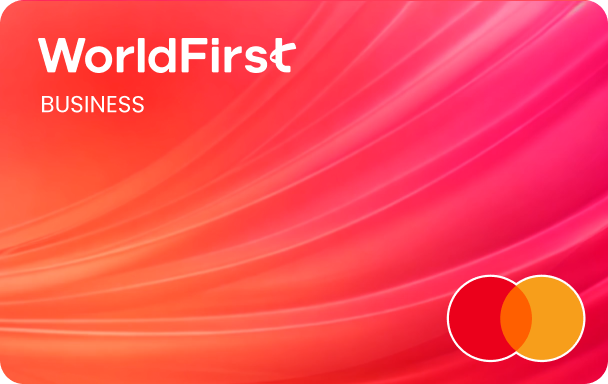Home > blog > Global Business Tips > Best Accounting Practices for Businesses in Malaysia
Best Accounting Practices for Businesses in Malaysia
anja

Clare Shi
Author
Key takeaways
If you’re doing research on how to source wholesale from 1688.com, you may have a few questions such as:
If you’re doing research on how to source wholesale from 1688.com, you may have a few questions such as:
If you’re doing research on how to source wholesale from 1688.com, you may have a few questions such as:
It’s Monday morning. You are a Malaysian business sipping your kopi O at the office. Your phone buzzes with a reminder.
Three invoices are overdue. Your biggest client wants payment terms in euros. Your warehouse manager needs updated stock valuations by noon.
If that scenario sounds familiar, you’re not alone. For many small and medium-sized enterprises (SMEs), accounting is not just about tracking numbers. Expense management involves managing many moving parts while trying to grow and stay compliant.
Good accounting is essential for any successful company. Tracking spending is especially true in B2B where transaction volumes are high, payment terms can be complex, and cross-border trade is common.
Whether you run a startup or a growing small business, good financial management is key. It helps you stay compliant, keep cash flow steady, and grow with confidence.
This guide offers practical strategies such as using Multi-currency accounts and modern tools
Why B2B Accounting Is More Complex
Running a small business is not just about sales. It also involves managing invoices, handling multi-currency payments, ensuring tax compliance, and keeping track of supply chain costs. Without the right accounting system, these processes quickly become messy and error-prone.
Common B2B Accounting Challenges
1. Invoicing and Payment Terms
B2B deals often involve credit terms (30–90 days), multiple payment methods, and recurring billing. Manual tracking = late payments and disputes. Using automated invoicing tools keeps cash flow smooth.
2. Multi-Currency Transactions
If you’re paying suppliers overseas, exchange rate swings, conversion fees, and slow payments can eat into profits. Look for cloud accounting software with multi-currency support and live FX rates.
3. Compliance and Reporting
SMEs in Malaysia must follow accounting standards and e-invoicing rules (MyInvois Portal). Missing deadlines risks penalties and extra fees. Opt for a cloud based accounting software or advice from a qualified accountant.
4. Supply Chain & Inventory Integration
For wholesalers or manufacturers, inventory, procurement, and accounting must sync. Real-time integration helps with accurate stock valuation, supplier payments, and better cash management.
5. Lack of Visibility
Relying on spreadsheets = slow reporting and outdated data. Cloud tools give SMEs real-time dashboards so you can track performance, manage cash flow, and make faster decisions.
Best Practices for Small Business Accounting
For SMEs in Malaysia, accounting goes beyond just balancing the books. It’s about finding smarter ways to manage finances, stay compliant, and improve cash flow visibility. Below are practical small business accounting tips that can help you run operations more efficiently.
1. Separate Personal and Business Finances
One of the most common mistakes SMEs make is mixing personal and business spending. This complicates reconciliation and creates tax headaches.
- Open a dedicated WorldFirst Account to clearly separate your company’s finances.
- Use the WorldFirst World Card for business expenses — it simplifies tracking spending and gives better control over budgets.
- Keep digital records of all receipts to support bookkeeping in Malaysia and compliance with audits.
This professional setup builds trust with banks. It helps with loan applications and ensures compliance with Malaysian Financial Reporting Standards (MFRS).
2. Use Cloud Tools to Automate Invoicing and Collections
Late or missed payments can cripple you as a small business owner in Malaysia. Manual invoicing that are prone to human errors and constantly chasing clients drain time. Instead:
- Switch to Xero, QuickBooks, or Wave — popular cloud accounting software in Malaysia.
- Take advantage of xero integration and other tools for cloud automation and automated accounting.
- Enable recurring invoices, auto-reminders, and online payment options for faster collections.
These accounting automation features are not just convenient. They give you a more reliable cash flow cycle and better manage business expenses.
Read how to automate invoicing.
Cloud Accounting vs. ERP Systems comparison below.
3. Integrate Cross-Border Payments
For businesses in global trade, using multiple currencies can cause hidden fees. International transfers can also create problems with balancing accounts.
Using platforms like WorldFirst gives SMEs the ability to:
- Hold balances in multiple currencies to reduce conversion costs.
- Send and receive money internationally at competitive FX rates.
- Sync payments automatically into your cloud accounting system for easier reporting.
This is especially useful for SMEs working with overseas suppliers, ecommerce platforms, or those seeking bookkeeping services in Malaysia that integrate international finance.
4. Embrace E-Invoicing Early
Malaysia’s phased adoption of e-invoicing requires all businesses to eventually comply through the MyInvois Portal.
- Phase 1: June 2024 → Large companies
- Phase 2: January 2025 → Mid-sized firms
- Full rollout: January 2027
SMEs should digitize invoices now. They can use any accounting service in Malaysia or free accounting software that supports e-invoicing. Early adoption brings:
- Faster invoice approvals and fewer errors.
- Automated compliance with MFRS.
- Smoother transitions when regulations tighten.
5. Monitor Cash Flow
Cash flow is the heartbeat of SMEs in Malaysia. Traditional month-end reports don’t provide enough visibility. Instead:
- Use real-time dashboards in your cloud accounting software.
- Track receivables, payables, and balances across multiple currencies.
- Set automated alerts for overdue invoices or low liquidity.
By monitoring daily, you’ll make better decisions on spending, supplier payments, and growth investments.
Cloud Accounting vs. ERP Systems
SMEs usually start with standalone accounting tools like Xero or QuickBooks. While larger firms adopt Enterprise Resource Planning (ERP) systems.
Cloud Accounting Software:
- Focuses on invoicing, payments, reconciliations, and reporting
- Best suited for SMEs and growing businesses
ERP Systems:
- Provide an all-in-one solution across finance, inventory, procurement, and sales
- Offer deeper integration and more powerful reporting
- Better for complex, high-volume operations
If your business is growing but you aren’t ready for a full ERP system, consider using a cloud accounting software. This software, along with payment automation tools, can offer similar efficiency.
How to Automate B2B Accounting
Automation is no longer optional—it’s the foundation of modern accounting. Here’s how to get started:
1. Assess Your Workflows
Map out bottlenecks such as manual data entry, delayed invoicing, and slow reconciliations.
2. Choose the Right Software
Evaluate solutions that fit your industry and compliance requirements. Consider platforms that integrate multi-currency payments, automated reconciliation, and e-invoicing.
3. Deploy and Train
Implement across your teams, document processes, and train staff.
4. Monitor Performance
Use dashboards and reports to track accuracy, cash flow, and compliance.
Benefits of automation include:
- Fewer errors due to reduced manual input
- Faster month-end closing and reporting
- Improved fraud detection with automated alerts
- Paperless workflows supporting sustainability goals
Simplify, Automate, and Scale
B2B accounting shouldn’t be a burden. With the right systems, automation, and processes, you can:
- Improve accuracy
- Save time
- Stay compliant
- Focus on growth
From Xero integration to secure FX management, WorldFirst helps you digitise finance processes and stay in control.
Register for a World Account today to streamline your operations and scale globally.
Continue reading
Subscribe
The Weekly Dispatch
Get the latest news and event invites. Signup for our weekly update from the worlds of fashion, design, and tech.

















































